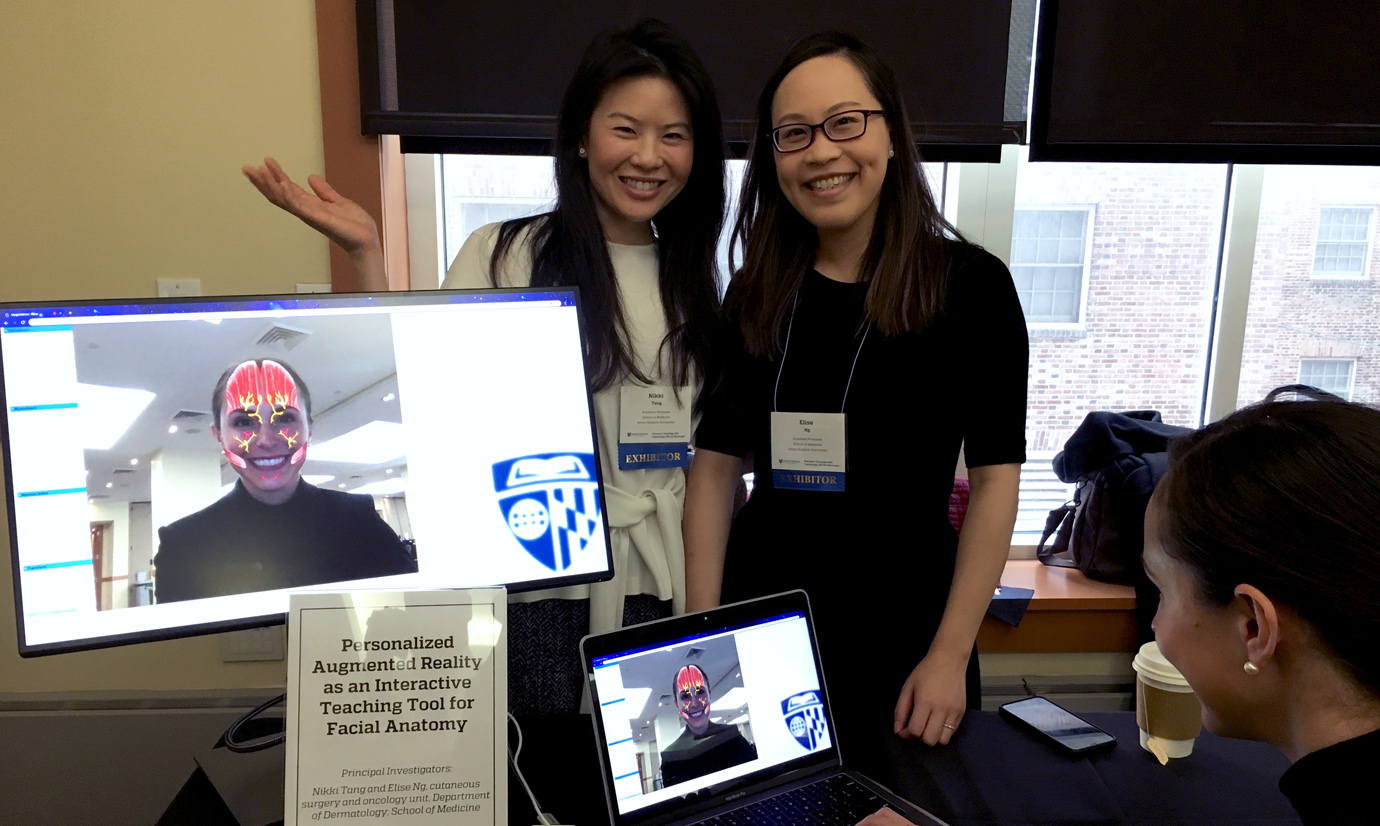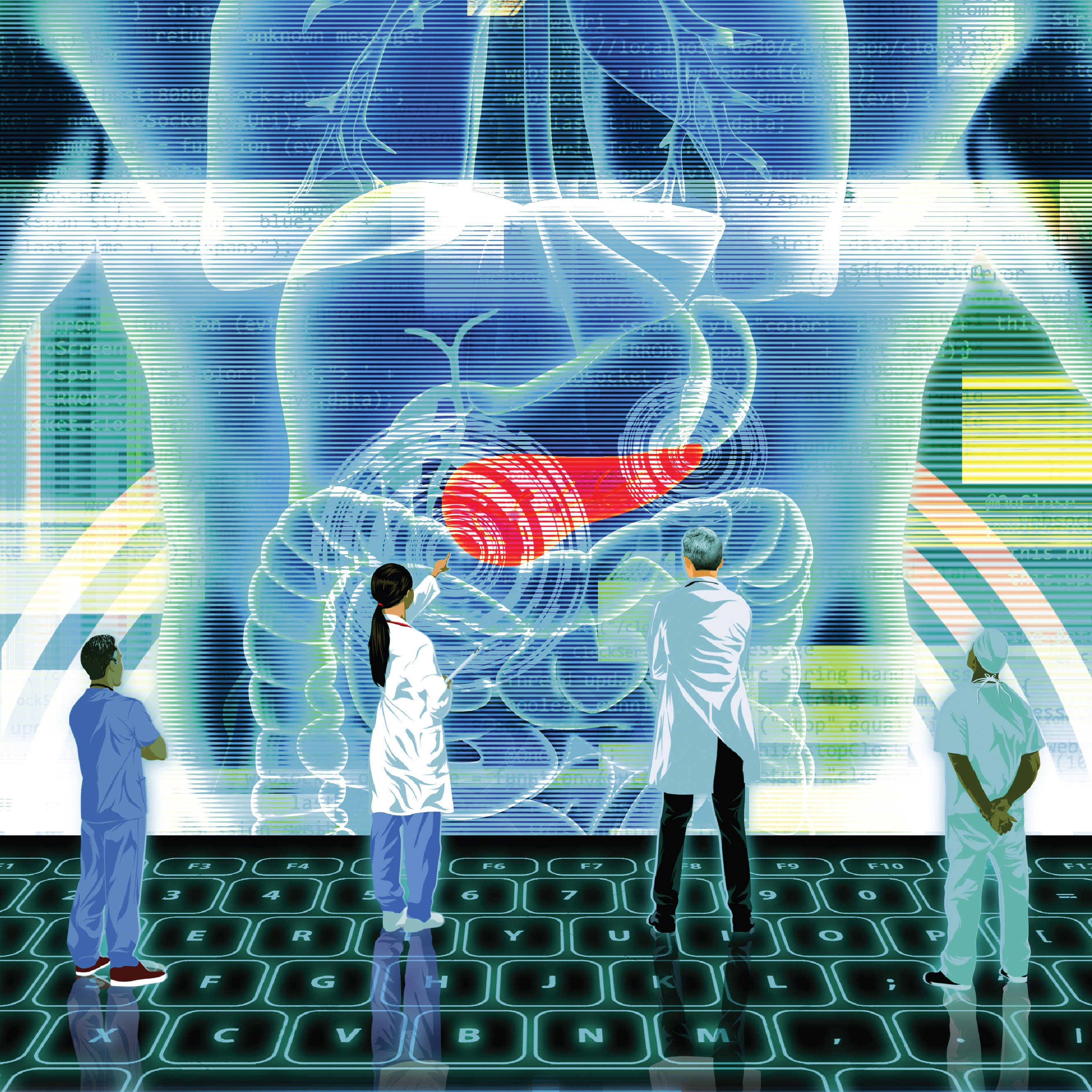Elise Ng and Nikki Tang, assistant professors of dermatology at the Johns Hopkins University School of Medicine, are always looking for ways to improve surgical education for residents. So, when they heard last year that the Office of the Provost was offering up to $75,000 per proposal through the new Digital Education & Learning Technology Acceleration (DELTA) Grants, they started brainstorming over coffee.
Their idea, to use augmented reality to teach facial anatomy, was one of six to receive a 2018 DELTA Grant. It was exhibited March 28 during the Provost’s Teaching with Technology DELTA Showcase on the Homewood Campus.
“Without a grant like this it would be impossible for us to pursue a research project at the intersection of medicine and technology such as this one,” says Ng, the clinical co-director of the Johns Hopkins Melanoma Program at the Sidney Kimmel Comprehensive Cancer Center.
Sunil Kumar, Johns Hopkins University provost, announced at the showcase that the DELTA Grant funding levels would remain the same for the 2019 funding cycle — a total of $350,000.
“It’s an affirmation of the university’s view that innovation in this space is important and, to be blunt, lacking,” he said.
Seeking Transformative Teaching Technology
Noting that teaching approaches have not evolved very far from pen-and-paper lessons, Kumar said the grant program aligns with Johns Hopkins’ focus on innovation. It also acknowledges that more and more students take classes only online, and some online degree programs do not require students to come to Baltimore.
Johns Hopkins offers various online degrees, most of which are in part-time master’s programs through the Bloomberg School of Public Health, the school of nursing, the Carey Business School and the Krieger School of Arts & Sciences, among others schools.
“We still need truly transformative teaching technology,” he said.
Innovation remains challenging due to the “constriction of the legacy system,” said George Siemens, the event’s keynote speaker and an expert on learning and organizational effectiveness in digital environments.
“We’re defaulting to legacy behaviors when there is a chance to look at how and why we are teaching,” Siemens told the educators and researchers. “Don’t start with the curriculum. Start with what the student knows and build a curriculum around that.”

Software Sparks Enthusiasm for Learning
Tang and Ng decided that surgical residents would learn better how to suture and use their instruments by practicing on 3D models instead of reading about the techniques and trying them a few times on a cadaver. Their computer program takes a live image of a user’s face and reveals the intricate network of nerves, arteries and muscles below the skin.
“Facial anatomy is complex, with many anatomical structures present,” says Ng. “Learning facial anatomy naturally requires a lot of memorization — both with respect to relative orientation as well as names of structures —which students tend to find more mundane.”
Medical students who participated in a pilot program using the software reported they had increased motivation to study and greater enthusiasm for learning, according to Tang, director of the Cutaneous Surgery & Oncology Unit.
Tang and Ng hope to launch a larger study soon. They also can imagine the software program becoming a mobile app as well as allowing users to see more layers in the body.
The other health-care-related recipient of the DELTA Grant was Greg Osgood, chief of orthopaedic trauma in the Department of Orthopaedic Surgery, who created augmented reality training for doctors who perform surgery to repair fractures.



